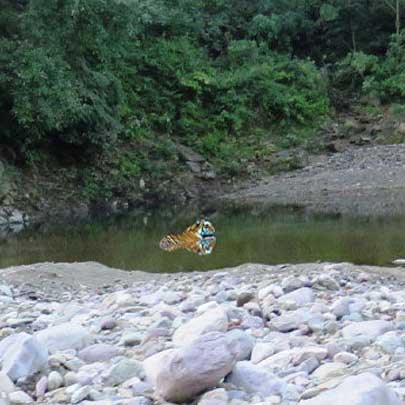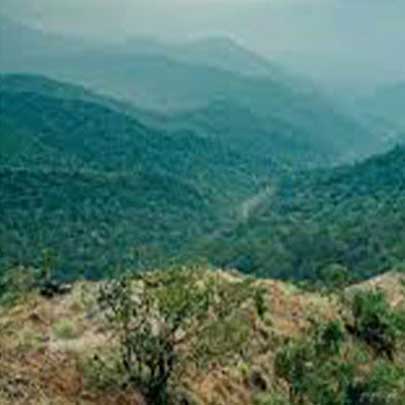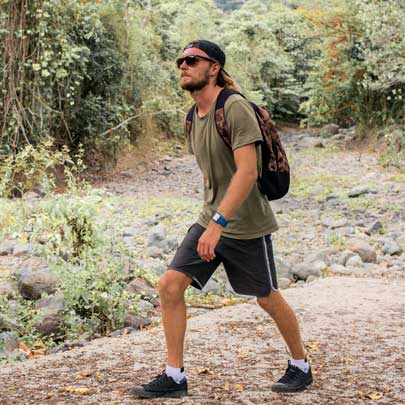"Eco-Friendly Travel: Exploring Nature Without Harming It"
"Eco-Friendly Travel: Exploring Nature
Without Harming It"
In today’s fast-paced world, the urge to escape into nature and recharge our minds and souls is stronger than ever. Travelers are increasingly seeking sustainable alternatives to traditional tourism, giving rise to a global movement known as eco-friendly travel. This concept is about exploring beautiful destinations without damaging the environment, respecting local cultures, and leaving a positive impact on communities.

One of the key players contributing to this conscious shift is Wildlense Wild Retreat, a sustainable travel destination where conservation meets comfort. In this blog, we’ll dive into the essence of eco-friendly travel, why it matters, the best practices you can adopt, and how Wildlense is redefining the way we connect with nature responsibly.
What Is Eco-Friendly Travel?
Eco-friendly travel, also known as sustainable travel or responsible tourism, is about minimizing negative impacts on the environment while maximizing the positive contributions to local ecosystems and communities. Unlike mass tourism, which often exploits resources, eco-friendly travel emphasizes:
-
Protecting biodiversity
-
Conserving water and energy
-
Reducing carbon footprint
-
Supporting local communities and businesses
-
Respecting cultural heritage
It’s not just about where you travel but how you travel.
Why Eco-Friendly Travel Matters in 2025

The tourism industry contributes significantly to global carbon emissions, deforestation, and waste generation. Popular travel destinations often face overtourism, which strains local infrastructure and disrupts ecosystems. That’s why eco-friendly travel practices are essential for:
-
Preserving natural habitats for future generations
-
Reducing plastic pollution and waste
-
Promoting wildlife conservation
-
Encouraging sustainable economies
By adopting green travel habits, you can still experience breathtaking adventures without leaving behind a harmful footprint.
Top Benefits of Eco-Friendly Travel
-
Environmental Conservation – Protects forests, rivers, and wildlife.
-
Healthier Travel Experience – Less pollution means cleaner air, water, and food.
-
Cultural Connection – Supports indigenous practices and authentic traditions.
-
Personal Fulfillment – Traveling with purpose creates lasting memories.
-
Sustainable Growth – Boosts local eco-tourism and green businesses.
Practical Eco-Friendly Travel Tips
Making your trips sustainable doesn’t mean compromising on comfort or adventure. Here are some eco-friendly travel practices to follow:
1. Choose Eco-Friendly Accommodations
Stay at eco-lodges, retreats, or hotels that use renewable energy, rainwater harvesting, and organic farming. A great example is Wildlense Wild Retreat, where sustainability is at the heart of every experience.

2. Travel Light and Smart
The lighter you pack, the lower your carbon emissions during flights or road trips. Use reusable bottles, bamboo cutlery, and eco-friendly bags.

3. Respect Wildlife
Avoid activities that exploit animals like elephant rides or dolphin shows. Instead, support conservation-focused safaris or nature walks.
4. Support Local Communities
Buy handmade products and hire local guides. This way, your money contributes directly to the community.
5. Minimize Plastic Waste
Carry reusable water bottles and avoid single-use plastics. Many eco-retreats like Wildlense encourage zero-waste travel.
6. Opt for Public Transport or Walking
Instead of renting cars, use bicycles, trains, or shared transportation to reduce carbon footprint.
Wildlense Wild Retreat: A Haven for Eco-Friendly Travelers
When it comes to eco-tourism in India, Wildlense Wild Retreat stands out as a perfect blend of sustainability and serenity. Surrounded by pristine landscapes and rich biodiversity, this retreat is designed for travelers who want to reconnect with nature while ensuring minimal impact on the environment.
Why Choose Wildlense Wild Retreat?
-
Eco-Friendly Infrastructure – Built using sustainable materials, solar energy, and waste management systems.
-
Wildlife Conservation – Actively supports conservation initiatives in local reserves.
-
Organic Living – Serves organic, locally sourced food to reduce carbon footprint.
-
Immersive Experiences – Offers guided safaris, stargazing nights, and nature trails that educate guests about responsible travel.
-
Community Empowerment – Provides employment and income opportunities for nearby villages.
By choosing Wildlense, you’re not just booking a stay—you’re contributing to a larger mission of sustainable tourism and wildlife protection.
Eco-Friendly Destinations You Should Explore
For those who want to embrace green travel, here are some eco-friendly destinations in India and worldwide:
-
Jim Corbett National Park, India – Perfect for wildlife lovers and sustainable safaris.
-
Kerala Backwaters – Eco-resorts and houseboats run on solar energy.
-
Costa Rica – Known globally for eco-tourism and biodiversity conservation.
-
Bhutan – The only carbon-negative country in the world.
-
Sundarbans, India – Explore mangroves and rare species in a responsible way.
Each destination offers travelers a chance to explore while preserving its natural and cultural heritage.
The Future of Travel Is Green
Travel trends in 2025 are shifting toward eco-conscious choices. From carbon-neutral flights to plant-based cuisine in hotels, travelers are prioritizing sustainability. Governments and organizations are also encouraging responsible tourism initiatives to protect fragile ecosystems.

If you’re planning your next trip, make sure it aligns with the principles of eco-friendly travel. Whether it’s booking at a sustainable retreat like Wildlense Wild Retreat, volunteering for conservation projects, or simply reducing waste, every action counts.
Conclusion
Eco-friendly travel isn’t just a trend—it’s a responsibility we all share. By choosing sustainable options, respecting wildlife, and supporting local communities, we can make travel a force for good.
Destinations like Wildlense Wild Retreat are proving that it’s possible to enjoy comfort, adventure, and connection with nature while safeguarding our planet. The future of travel lies in going green, and every small step you take today contributes to a bigger impact tomorrow.












































































